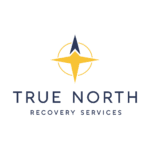ALCOHOL ADDICTION TREATMENT IN DENVER
Find comprehensive, compassionate care and personalized treatment plans to overcome alcohol addiction in Denver County.
As with any substance, there is always the possibility of misusing and abusing it. Since alcohol is legal and widely available across the United States, many citizens actively drink. To date, alcohol is the most widely abused substance in the world. According to a 2019 research study by the NIAA, 14.5 million people ages 12 and older meet the clinical diagnosis of Alcohol Use Disorder (AUD). Furthermore, approximately 8.5% of people in Colorado struggle with AUD. The rate of Alcohol misuse in Colorado is roughly 3% greater than the nation average. To help support people who want to stop drinking, we need to provide adequate addiction treatment resources.
Moreover, heavy alcohol consumption can cause drastic effects on people’s bodies. Alcohol works by disrupting communication between neurons in the brain. This disruption commonly impacts speech, memory, motor function and basic thought processes. Additionally, excessive drinking can result in memory blackouts, liver failure, and high blood pressure. If gone untreated, excessive alcohol use can have fatal consequences.
How Do I Know If I Have Alcohol Use Disorder?
One of the easiest ways to determine whether or not you struggle with alcohol is if you try to stop and can’t. For people who can stop, ask yourself, did this feel incredibly difficult, or was it easy? If it was difficult, you might want to reduce the overall times you consume alcohol. Additionally, if you experience any of the signs and symptoms below when you attempt to stop drinking, you should consider seeking professional help.
- Nausea or vomiting
- Insomnia
- Irritability
- Sweating
- Headaches
- Hallucinations or delusional episodes
- Seizures
People who heavily consume alcohol may be at risk for severe or even fatal withdrawal symptoms. If you or someone you love are attempting to achieve sobriety from alcohol contact us today. We can help guide you in the right direction and answer questions you may have about the recovery process.
Alcohol Addiction Treatment at True North Recovery Services
Don’t wait to start your journey to recovery. Reach out to True North Recovery Services today and take the first step toward a healthier, alcohol-free life. Our compassionate team is here to support you every step of the way.
We Accept Most Major Insurances
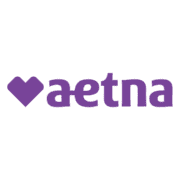


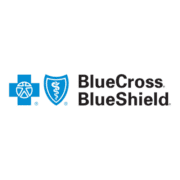
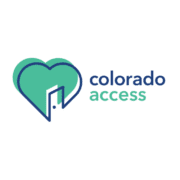
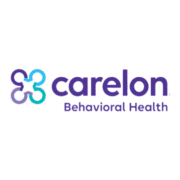
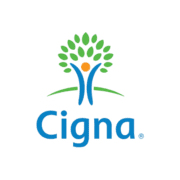




Your questions answered
FAQs
What is Alcohol Use Disorder (AUD)?
AUD is a medical condition characterized by an inability to control or stop alcohol consumption despite negative consequences. It ranges from mild to severe and can lead to significant health, social, and personal issues.
How can I tell if I have a drinking problem?
Signs include:
- Inability to limit alcohol intake
- Experiencing withdrawal symptoms like nausea, insomnia, or irritability when not drinking
- Neglecting responsibilities due to drinking
- Continued use despite health or social problems
If you recognize these signs, it’s advisable to seek professional help.
What treatment options are available for alcohol addiction in Denver?
Treatment options include:
- Intensive Outpatient Programs (IOP): Structured therapy sessions multiple times a week.
- Outpatient Programs: Flexible therapy sessions while maintaining daily responsibilities.
- Sober Living Programs: Supportive housing environments promoting sobriety.
These programs often incorporate individual therapy, group sessions, and family counseling.
Is detoxification necessary before starting treatment?
For individuals with severe alcohol dependence, medically supervised detox may be necessary to manage withdrawal symptoms safely. This process typically lasts 4 to 10 days and is followed by continued treatment.
What are common withdrawal symptoms from alcohol?
Withdrawal symptoms can include:
- Nausea or vomiting
- Insomnia
- Irritability
- Sweating
- Headaches
- Hallucinations or delusions
- Seizures
Severe symptoms require immediate medical attention.
How long does alcohol addiction treatment typically last?
The duration varies based on individual needs. Intensive outpatient programs may last several weeks, while ongoing support through outpatient services or sober living can extend for months to ensure sustained recovery.
Does insurance cover alcohol addiction treatment?
Many treatment centers, including those in Denver, accept major insurance providers. It’s essential to verify coverage details with both the treatment facility and your insurance company.
Can I work or attend school while undergoing treatment?
Yes. Outpatient programs are designed to accommodate daily responsibilities, allowing individuals to continue working or studying while receiving treatment.
What support is available after completing a treatment program?
Post-treatment support includes:
- Aftercare Programs: Continued therapy sessions to reinforce coping strategies.
- Support Groups: Participation in groups like Alcoholics Anonymous (AA) or SMART Recovery.
- Sober Living Homes: Transitional housing promoting a substance-free environment.
These resources help maintain long-term sobriety.
How do I start the process of getting help?
Begin by contacting a reputable treatment center to discuss your situation. They can provide assessments, discuss treatment options, and guide you through the admission process.
Opening Hours:
Monday – Friday 8am – 9pm
Phone:(720) 669-6793
Email: info@truenorthrecoveryservices.com
Address: 2696 S Colorado Blvd Ste 445 Denver, CO 80222

